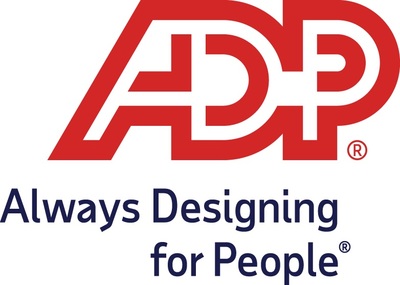ADP Research: Only 24% of Global Workers Are Confident They Have Skills for Career Advancement
Rhea-AI Summary
ADP Research reveals concerning findings about global workforce skills development in their 'People at Work 2025' report. Only 24% of workers globally feel confident they have skills for career advancement, while merely 17% strongly agree their employers invest in their skill development.
The study, based on nearly 38,000 workers across 34 markets, shows workers who receive proper training are 6 times more likely to recommend their company and 3.3 times more productive. Regional disparities are significant: Middle East & Africa leads with 38% of workers confident in their advancement skills, while Europe lags at 17%.
Particularly concerning is the situation of cycle workers, with only 9% of men and 7% of women satisfied with upskilling opportunities. The research emphasizes that career advancement opportunities are second only to scheduling flexibility in retaining workers.
Positive
- Workers with proper training are 6x more likely to recommend their company
- Trained employees are 3.3x more productive
- Trained workers are 2x more likely to stay with their organization
Negative
- Only 24% of workers feel confident in having skills for career advancement
- Just 17% believe their employers invest in their skill development
- Cycle workers show extremely low satisfaction with upskilling (9% men, 7% women)
- Significant regional disparities in workforce development opportunities
News Market Reaction 1 Alert
On the day this news was published, ADP gained 1.17%, reflecting a mild positive market reaction.
Data tracked by StockTitan Argus on the day of publication.
Study examines the untapped potential of workers in the first of a series of studies comprising the refreshed "People at Work 2025" report, built on the ADP Research Global Workforce Survey
For employers, the need to prioritize skills development is deeper than building a workforce that keeps pace with today's dynamic workplace. ADP Research's analysis found providing employees with the skills of tomorrow is correlated to productivity, retention and reputation.
"Our research shows that a skilled workforce is more loyal to their employers—and more productive. Yet only a small fraction of workers are upskilled within two years of being hired," said Nela Richardson, chief economist, ADP. "If companies want to benefit from the enormous technological advancement to come, they must start with investing in the skills and career progression of their workers."
The skills development analysis launches "People at Work 2025," ADP Research's annual lens into the world of work that has been given a data refresh in 2025 in addition to being revamped as a series of reports on various workplace topics. The refreshed report is built on workplace data and topics from ADP Research's Global Workforce Survey which has been conducted since 2015. "People at Work" provides comprehensive worker sentiment on how workers feel and think, as well as what they expect from their employer, with a purpose to empower employers to meet challenges and capitalize on opportunities amid a rapidly changing world of work.
The Untapped Potential of Workers
In the first installment of the "People at Work 2025" report series, the ADP Research team examined the impact of skills development learned through on-the-job training and found most workers think their employers could be doing better when it comes to skills development. The analysis further finds the business opportunity that comes with building out comprehensive training programs that help ensure employees are prepared for tomorrow's world of work.
"We found that education is not enough to fill the skills gap," said Mary Hayes, research director of People & Performance at ADP Research. "Only 24 percent of workers are confident that they have the skills needed to advance in the next three years of their careers. The world of work is changing at light speed, and organizations need to do their part to close the skills gap."
Other key findings include:
- The opportunity to get ahead is important, and not just for workers. When workers globally were asked to provide the top reasons why they would stay with their employer, the opportunity for career advancement is second only to flexibility in scheduling.
- Workers who feel strongly their employer is providing the training they need are nearly 6 times more likely to recommend their company as a great place to work.
- These same workers are also 3.3 times more likely to describe themselves as highly-productive.
- They're also twice as likely to say they have no intent to leave their organization compared to workers who have the skills but lack on-the-job training opportunities.
- Cycle workers, those that do similar repetitive tasks daily, in particular have a dismal view of employer investment, with only 9 percent of men and 7 percent of women expressing satisfaction in their upskilling opportunities.
The refreshed "People at Work 2025" series will dive deep into key topics at a market-by-market level, crucial for the increasingly borderless world of work. Digging into some of the market-by-market findings from the skills development launch story, ADP Research's analysis reveals:
- Workers in the
Middle East &Africa were most likely to believe they have the skills needed to advance their career to the next job level in the next three years (38% ), followed byLatin America (32% ),North America (22% ),Asia-Pacific (21% ), andEurope (17% ). - Workers in the
Middle East &Africa were also the most likely to say their employer invests in the skills needed to advance their career in the future (28% ), followed byNorth America (18% ),Latin America andAsia-Pacific (17% ), andEurope (12% ). - By markets, workers in
Nigeria were the most likely to believe they have the skills needed to advance their career to the next job level in the next three years (45% ), followed byEgypt (44% ),South Africa (42% ),India andBrazil (37% ), Saudi Arabia (36% ),Chile (32% ),Argentina (30% ), andPeru (30% ). - By markets, workers in
Egypt were the most likely to say their employer invests in the skills needed to advance their career in the future (35% ), followed byIndia (32% ),South Africa (29% ),Saudi Arabia (28% ),Nigeria (27% ),Brazil andThailand (24% ),Vietnam andSingapore (23% ), andPhilippines (21% ).
"People at Work 2025" Report Series Methodology
For the first time, "People at Work" is built on the ADP Research Global Workforce Survey, a robust study conducted annually since 2015. The survey was designed by ADP Research's team of analysts by obtaining information about the labor market from the perspective of workers themselves, with the goal of providing insights that can improve the world of work by better understanding worker sentiment and expectations.
Based on survey data from nearly 38,000 working adults in 34 markets across six continents, "People at Work 2025" features a more robust, representative sample of the global workforce to provide regional and market-to-market comparisons of worker sentiment in the
Respondents come from a wide variety of industries, educational backgrounds, on-site and remote work environments and skill sets. They represent a range of management and individual contributor roles, working for employers of all sizes.
A unique attribute of the "People at Work 2025" report series is its measurement of worker sentiment in granular detail across worker types using a proprietary methodology developed by ADP Research. In addition to demographic and employer characteristics, survey respondents are classified by the type of work they do – knowledge, skilled task, or cyclical – regardless of industry.
"People at Work's" ability to gather sentiment along these different worker and geographical dimensions provides employers with a fine-tuned and granular view of the global workforce that they can leverage to better understand their workforces and drive growth through data-driven talent decisions.
"The future of work will be increasingly global and dynamic in its priorities," said Richardson. "The new People at Work series format enables a more focused analysis of the data by topic and region, better ensuring worldwide business leaders with varying needs are provided with the same level of actionable research on a wide range of subjects impacting their employees."
Each report will pair global trends with market-by-market insights on workplace topics ranging from artificial intelligence and inflation's impact on having multiple jobs, to wage trends and career development.
Stay Up-to-Date on the "People at Work 2025" Report Series
Publishing throughout early 2025, the revamped "People at Work 2025" report series can help companies stay on the right track for today's workplace, while prepare them to capitalize on the opportunities that will come with the future of work.
To stay current on the latest studies in the "People at Work 2025" report series, visit here.
About ADP Research
The mission of ADP Research is to make the future of work more productive through data-driven discovery. Companies, workers, and policymakers rely on our finely tuned data and unique perspective to make informed decisions that impact workplaces around the world.
About ADP (NASDAQ – ADP)
Designing better ways to work through cutting-edge products, premium services and exceptional experiences that enable people to reach their full potential. HR, Talent, Time Management, Benefits and Payroll. Informed by data and designed for people. Learn more at ADP.com.
ADP, the ADP logo, and Always Designing for People, ADP National Employment Report, ADP Research Institute and ADP Research are trademarks of ADP, Inc. All other marks are the property of their respective owners.
Copyright © 2025 ADP, Inc. All rights reserved.
![]() View original content to download multimedia:https://www.prnewswire.com/news-releases/adp-research-only-24-of-global-workers-are-confident-they-have-skills-for-career-advancement-302348752.html
View original content to download multimedia:https://www.prnewswire.com/news-releases/adp-research-only-24-of-global-workers-are-confident-they-have-skills-for-career-advancement-302348752.html
SOURCE ADP, Inc.









